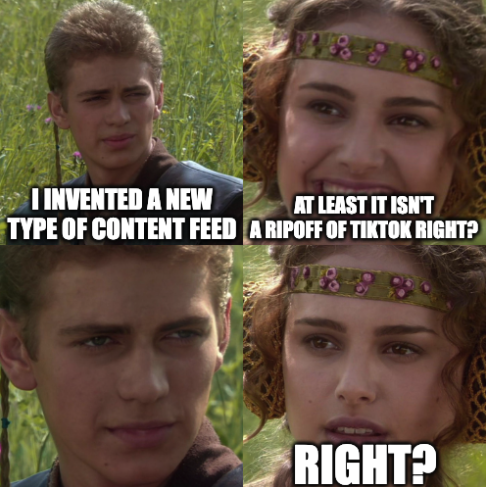
In popular lore, the Spanish conquistador Cortes burned the boats, but to be historically accurate, we must use the less satisfactory descriptor of destroyed. Recognizing that there was only one way for his army to survive the upcoming battles, Cortes gave his soldiers one path—forward. He destroyed his boats so the army had no choice but victory. From there, he marched against Montezuma and the Aztecs, slaughtering ~100K people along the way, buying riches and notoriety with the blood of innocents. He kinda reminds of Mark Zuckerberg.
Stick with me now—Cortes is primarily known for helping discover new geographies, being a genocidal maniac responsible for the mass murder of an entire race, and for getting fabulously rich. The Zuck helped form the Facebook digital nation state, is somewhat responsible for the death of thousands in Myanmar, and is Scrooge McDuck level of rich-rich. So maybe not the exact same as Cortes, but maybe like a millennial, lizard-person, Diet-Coke version of Cortes.
And, like Cortes, Zuckerberg has decided to burn the boats.
Last week, The Verge got a hold of an internal Meta product strategy memo entitled “Building the Discovery Engine.” Written by Tom Alison, the current leader of the Facebook app, it outlined how Facebook was going to completely change its feed to compete with TikTok. Rather than just show the content of the people you are connected to, the feed will also help you discover content that you may be interested in.
Consider how crazy this moment is. Since 2007, Facebook has defined what social products meant on the Web and here, after 15 years of leadership, they missed the boat on this one (sorry, I’m done with marine metaphors). They will end up totally capitulating to TikTok’s feed modality. While Meta has ripped off others innovations before by copying Snapchat’s stories format, this is something different. This isn’t just adding a new way to display content to friends. This is an abandonment of the idea that, until now, has defined Facebook: the social graph. It represents a shift in how we should think about social media products.
Today’s (paid) post will analyze the state of the company, the product choices that lead to this moment, and what this change can indicate about the future of digital entertainment.
The Current State of Affairs
Meta’s (Facebook’s parent company) stock has been absolutely crushed this year.
Being down 52% is, to use a technical term, “being down bad.” A combination of new regulations reducing ad efficacy, billions of investment into their VR platform, and rising competition has resulted in the company’s stock price being crushed.
If you were to pull some random market research report, they would say that Facebook is a company in the digital ad market. This may be technically true, but it’s not wholly accurate. Facebook is a company that is in the eyeball business that just so happens to monetize via digital advertising. Their primary function is to get people looking and clicking until the day they die.
The scale at which they do so is incredible:
- Daily Active User for any of Facebook’s apps (Facebook, Instagram, WhatsApp, Messenger) was 2.87 billion on average for March 2022, an increase of 6% year-over-year.
- Facebook daily active users (DAUs) were 1.96 billion on average for March 2022, an increase of 4% year-over-year.
They have essentially reached the point where every person with internet access on the planet has used their apps. The prerogative for their team is no longer growth at all costs— it’s protecting their fiefdom…also at all costs.
When someone says that X service is stealing market share from Facebook, it's important to be specific about what they actually mean. It could be the digital ad market—meaning marketing dollars that would’ve gone to them have gone somewhere else. But it could also be that someone is taking timeshare away from the company. Anything, and I mean anything, that people spend time on besides Facebook is a competitive threat to them. Shoot, you could probably make an argument that even Gmail is at least tangentially competitive.
TikTok is a threat on both axes of competition. Their ad revenue is forecasted to be hit ~$12B this year, triple from the year before. This is impressive but relatively minuscule compared to the $115B that Meta pulled in last year. However the timeshare win is staggering. From my piece a few weeks ago:
“The average TikTok user is on the app for 89 minutes a day. They open it over 19 times a day. The app is the third most used social app in America, topping Snapchat, LinkedIn, Twitter, and Pinterest. It is used by over a billion people a month. Assuming a 50% dropoff from monthly to daily active users, the app consumes 84,608 man-years a day.”
In popular lore, the Spanish conquistador Cortes burned the boats, but to be historically accurate, we must use the less satisfactory descriptor of destroyed. Recognizing that there was only one way for his army to survive the upcoming battles, Cortes gave his soldiers one path—forward. He destroyed his boats so the army had no choice but victory. From there, he marched against Montezuma and the Aztecs, slaughtering ~100K people along the way, buying riches and notoriety with the blood of innocents. He kinda reminds of Mark Zuckerberg.
Stick with me now—Cortes is primarily known for helping discover new geographies, being a genocidal maniac responsible for the mass murder of an entire race, and for getting fabulously rich. The Zuck helped form the Facebook digital nation state, is somewhat responsible for the death of thousands in Myanmar, and is Scrooge McDuck level of rich-rich. So maybe not the exact same as Cortes, but maybe like a millennial, lizard-person, Diet-Coke version of Cortes.
And, like Cortes, Zuckerberg has decided to burn the boats.
Last week, The Verge got a hold of an internal Meta product strategy memo entitled “Building the Discovery Engine.” Written by Tom Alison, the current leader of the Facebook app, it outlined how Facebook was going to completely change its feed to compete with TikTok. Rather than just show the content of the people you are connected to, the feed will also help you discover content that you may be interested in.
Consider how crazy this moment is. Since 2007, Facebook has defined what social products meant on the Web and here, after 15 years of leadership, they missed the boat on this one (sorry, I’m done with marine metaphors). They will end up totally capitulating to TikTok’s feed modality. While Meta has ripped off others innovations before by copying Snapchat’s stories format, this is something different. This isn’t just adding a new way to display content to friends. This is an abandonment of the idea that, until now, has defined Facebook: the social graph. It represents a shift in how we should think about social media products.
Today’s (paid) post will analyze the state of the company, the product choices that lead to this moment, and what this change can indicate about the future of digital entertainment.
The Current State of Affairs
Meta’s (Facebook’s parent company) stock has been absolutely crushed this year.
Being down 52% is, to use a technical term, “being down bad.” A combination of new regulations reducing ad efficacy, billions of investment into their VR platform, and rising competition has resulted in the company’s stock price being crushed.
If you were to pull some random market research report, they would say that Facebook is a company in the digital ad market. This may be technically true, but it’s not wholly accurate. Facebook is a company that is in the eyeball business that just so happens to monetize via digital advertising. Their primary function is to get people looking and clicking until the day they die.
The scale at which they do so is incredible:
- Daily Active User for any of Facebook’s apps (Facebook, Instagram, WhatsApp, Messenger) was 2.87 billion on average for March 2022, an increase of 6% year-over-year.
- Facebook daily active users (DAUs) were 1.96 billion on average for March 2022, an increase of 4% year-over-year.
They have essentially reached the point where every person with internet access on the planet has used their apps. The prerogative for their team is no longer growth at all costs— it’s protecting their fiefdom…also at all costs.
When someone says that X service is stealing market share from Facebook, it's important to be specific about what they actually mean. It could be the digital ad market—meaning marketing dollars that would’ve gone to them have gone somewhere else. But it could also be that someone is taking timeshare away from the company. Anything, and I mean anything, that people spend time on besides Facebook is a competitive threat to them. Shoot, you could probably make an argument that even Gmail is at least tangentially competitive.
TikTok is a threat on both axes of competition. Their ad revenue is forecasted to be hit ~$12B this year, triple from the year before. This is impressive but relatively minuscule compared to the $115B that Meta pulled in last year. However the timeshare win is staggering. From my piece a few weeks ago:
“The average TikTok user is on the app for 89 minutes a day. They open it over 19 times a day. The app is the third most used social app in America, topping Snapchat, LinkedIn, Twitter, and Pinterest. It is used by over a billion people a month. Assuming a 50% dropoff from monthly to daily active users, the app consumes 84,608 man-years a day.”
For an app that only got started in the U.S. in the last five years and came to prominence over the last two, these results are impressive. And keep in mind, every minute a user is scrolling TikTok is another moment they aren’t on a Meta property. Note: TikTok’s parent company ByteDance is not a public company, so some of the Napkin Math on time spent is a guesstimate. The numbers above come from a leaked pitch deck, while other sources look at it as lower. Regardless, this number is large and growing, directly taking away from Meta.
While much of this victory was determined by format, with TikTok’s video-only vertical feed, there is a deeper truth this uncovers.
Why On Earth Would I Care About Your Social?
“Almost all feeds end up vying with each other in the zero sum attention landscape, and as such, they all end up getting pulled into competing on the same axis of interest or entertainment.” Eugene Wei
It is exceedingly rare to see a company abandon an advantage that got them a trillion-dollar valuation. But that is exactly what Facebook is doing. To understand why we need to start in 2007.
At Facebook’s first F8 conference in San Francisco, Zuckerberg—age 23, world’s youngest billionaire—strode across the stage to announce a product that would get him a class-action lawsuit in less than 30 days: Beacons. It connected Facebook’s social data with other websites, allowing website activity to be piped into the news feed. Bought a ticket to Hawaii? The purchase would be displayed on the feed for your friend to see. Why was this useful? Who cares. It was 2007, a much more optimistic time in tech, and it sounded cool. It turned out that this user tracking happened regardless of permissions and whether a person was even a Facebook member (thus the lawsuit) but that’s unimportant for today.
What is important for our purposes is that Beacons allowed Zuckerberg to introduce the concept of a Social Graph for the first time. A social graph is all of the connections between a network of individuals.
It is hard to picture this now, but back then, we thought that everything should be social. There would be social commerce! Social business! Social ads! The social graph was the connecting thread that allowed all of these potentially social experiences to be tied together by a central user ID. While the social web didn’t really happen to the degree forecasted, it turned out that having a central user ID was enormously beneficial for ad targeting and attribution.
The social graph was what determined the content of your individual feed on Facebook. What your friends posted and shared, you saw. Thus the social part of social media. The content meant to protect Meta’s timeshare was all determined by the relative closeness and engagement of your social graph.
Or as Alison put it in his internal memo:
“Historically, Facebook has taken an entity-centric approach to discovery. We help you connect with the friends, groups, and pages you care about most. Then updates from those connections are ranked in Feed. Unconnected content in Feed was surfaced via reshares from the friends, groups, and pages you follow, but unconnected recommendations weren’t historically a core part of the Feed experience. However we did invest heavily in unconnected content discovery on adjacent surfaces, i.e. through search queries or recommendations-first products like Watch, News, and Marketplace.”
Over the last few years, we have learned some things about the so-called social web. First, we don’t actually care what most people think. The social component isn’t as engaging as initially thought, because much of the day-to-day lives of people are boring. We simply do not care, at all, about someone from your high school’s political opinion. Content from acquaintances wasn’t that interesting.
We also figured out there was a negative opportunity cost associated with posting much of our social existence online. All of us, and I mean every single one of us, has used a slur, made a racist joke, said something derogatory, or just been plain stupid in the public sphere. Since 2007 it has become increasingly obvious that the benefit of sharing your life online just isn’t worth the risk of saying something that feels benign now, but maybe destroy your life in 10 years.
As Facebook scaled to the 3B or users they have, you can’t blame them for trusting that the social graph was the reason why. All they had to do was copy new media formats (see their knockoff of Snapchat’s format, or Substack’s newsletter product) and point their social graph cannon at it and away they would go.
Then, TikTok. TikTok didn’t bother with the whole social graph thing. Instead, through incredibly smart design and a breakthrough machine learning algorithm, they went straight to an interest graph. An interest graph is exactly what it sounds like: it's the connections between the interests a person has. While other services (namely Youtube) have been purely focused on the interest graph, TikTok’s short-form video format allowed for a much better targeting algorithm. It turns out that playing directly to an individual’s interests is an excellent way to get them to stay on your app for a long time.
In short, the social graph was just a poor substitute for the interest graph. All people are looking for from their so-called “social” media is just media they are interested in.
Now Meta has realized their error, is burning the social graph boat, and is going all-in on being a “discovery engine.”
Discovering Boredom
It was Instagram that first publicly admitted something was wrong. In June of last year, the head of Instagram said, “Let’s be honest: There’s some really serious competition right now. TikTok is huge, YouTube is even bigger, and there’s lots of other upstarts as well. And so people are looking to Instagram to be entertained. There’s stiff competition, and there’s more to do.”
Instagram started to integrate their TikTok knockoff Reels last year and embedding video directly into the central feed. However, that didn’t stanch the bleeding for Meta.
The temptation when you have billions of users is to just build everything. If you were to open your Facebook app, I think you would be shocked at the number of products that are currently housed there. There are literally dozens of applications, ranging from a Marketplace to Dating to Watch to Stories, all housed within the same social graph. All of these ideas probably make sense individually—after all, selling multiple products to the customer is a legitimate strategy. However, each of these solve a different job-to-be-done, so the value proposition for downloading Facebook gets more and more muddled. It is likely that people just want to be entertained everywhere. The distracting tab strategy is being changed according to the Q&A section of the memo:
“Q: Are we still trying to build lots of different products and services and grow tabs? A: The short answer is that we’re not trying to build a lot of new tabs right now - we’re focused on making our core products better and more integrated. We want our tabs to complement the content people discover, enjoy, and share on our Home screen. Our personalized tabs system is still very valuable, but we’re changing our tab strategy to put more focus on tabs that complement Feed by providing unique experiences that help people find or create content, and that are incremental to our overall app.”
Perhaps the clearest articulation of the failure of the social graph is Facebook’s reintegration of its messaging app.
“Messaging apps have become an important venue for people to share and have conversations with smaller groups of friends and sub-communities. We’re also seeing shifts away from resharing content broadly via Feed and towards resharing content to smaller audiences in messaging apps. Given how much sharing and social interactions take place on messaging apps, it’s important that we integrate messaging experiences more fundamentally into how we enable people to connect and share on Facebook. To that end, we’re partnering with the Messenger team to enable an integrated inbox for more people on Facebook, revamping our sharing flows to enable better sharing to messaging apps across the board, and building community messaging experiences across Facebook and Messenger.”
Allow me to translate from corporate legalese. “No one wants to post anything anymore, but they still love DMing gossip, so we have to completely give up on the feed.”
The end result of all this will be a multimedia format Facebook that copies TikTok’s feed. I don’t know exactly what percentage of the content will be short-format video versus other mediums, but connecting you with content totally unrelated to your social graph is the important thing.
Virality
In 50 years, as Harvard Business School professors philosophize over the Internet era in 2020, I think one the biggest stories they will tell is about our collective capitulation to content of the lowest common denominator. Or, as a tweet showing off Snapchat’s discover page recently called it, “content sludge.”
It's hard to say whether content from your social graph or interest graph is better for you (which is why the Facebook memo casts no judgment in either direction) but it is easy to say what is more engaging. Forget communities or connections, engagement’s what matters. The key for Facebook will be threading the needle between pure engagement bait like Snapchat and the more elevated content that TikTok has succeeded with.
The most interesting thing to consider is what does the term “social media” even mean in 5 years. If the interest graph thesis is correct, then I wonder if we will see a bifurcation of these types of services into either hyper-local-social media that only involve your close friends (like Snapchat’s messaging or BeReal) and user generated content entertainment platforms (like Youtube and TikTok). Regardless, we know which side of the spectrum Facebook is aiming for.
Ideas and Apps to
Thrive in the AI Age
The essential toolkit for those shaping the future
"This might be the best value you
can get from an AI subscription."
- Jay S.
Join 100,000+ leaders, builders, and innovators

Email address
Already have an account? Sign in
What is included in a subscription?
Daily insights from AI pioneers + early access to powerful AI tools
Ideas and Apps to
Thrive in the AI Age
The essential toolkit for those shaping the future
"This might be the best value you
can get from an AI subscription."
- Jay S.
Join 100,000+ leaders, builders, and innovators

Email address
Already have an account? Sign in
What is included in a subscription?
Daily insights from AI pioneers + early access to powerful AI tools
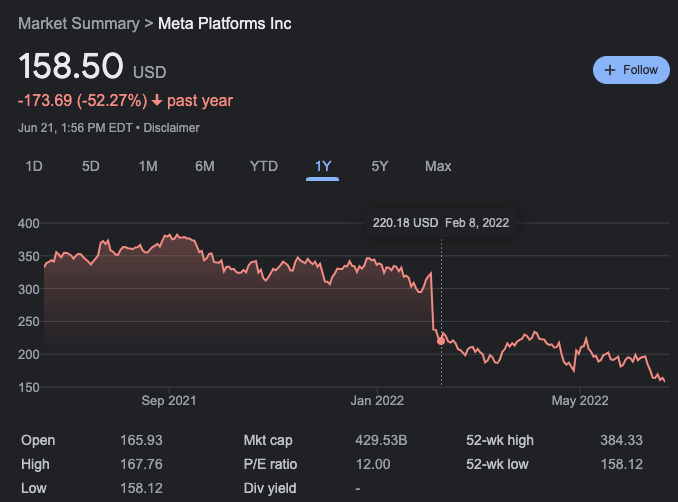
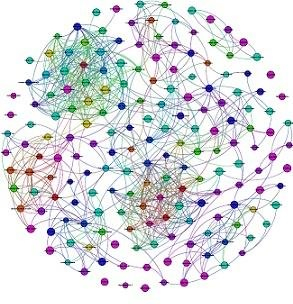



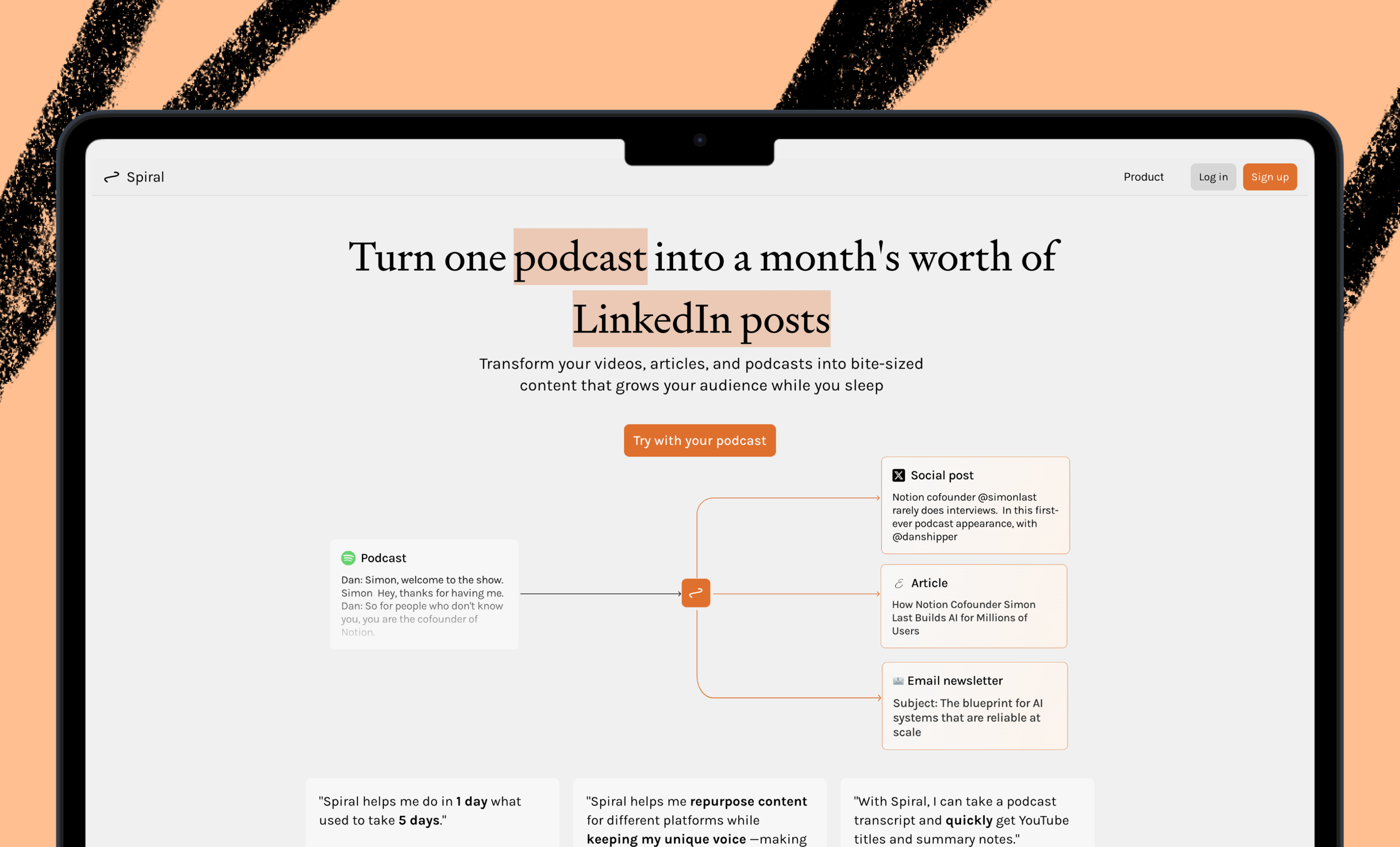



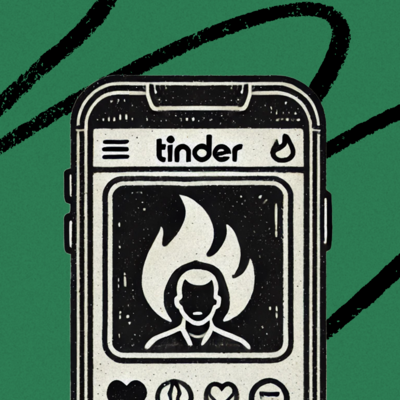



Comments
Don't have an account? Sign up!